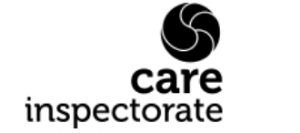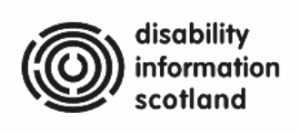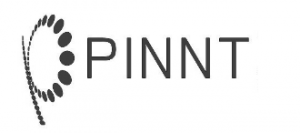Home > What is MND ? > Living with MND
Living with MND
We know a diagnosis of motor neuron disease (MND) can turn your world upside down and present you and your family with many challenges.
To help you live the best possible life with MND, this page covers our essential advice, how to manage day-to-day issues and what may improve your quality of life.
Explore:
Supporting someone living with MND?
If you’re caring for someone with MND, we can offer you a wide range of helpful information and support. We want you to know you’re not alone and that our expert services can ease your worries and help you look after yourself.
All our services for people living with MND
As well as reading the advice on this page, please visit our services section. It provides a summary of all the ways we can help you understand your illness better, prepare you for the future and improve your quality of life.
Our advice
Since we were founded over 40 years ago, we’ve listened to, supported and worked with thousands of people living with MND. Through this experience, we’ve identified some key pieces of advice below that we think will benefit anyone diagnosed with motor neuron disease.
Reach out for support
Being diagnosed with MND can be overwhelming. You may experience a range of difficult emotions and feel isolated and lonely.
These feelings may be something you struggle to talk to your family and friends about. But the good news is you can reach out and speak to other people who understand what you’re going through.
You can speak to your MND clinical nurse specialist. They can provide you with emotional and practical support and help with a wide range of other issues.
MND Scotland is also here to provide a listening ear and give you the support you need. You can contact us on 0141 332 3903 (9am to 5pm, Mon to Fri) or support@mndscotland.org.uk. We’ll do our best to answer your calls and reply to emails promptly. But if your call does go to our answer machine, please leave a message. We regularly check for messages and will return your call as soon as possible.
You can also join our Online Peer Support Groups where you can talk openly with other people living with MND.
You can apply to use our free Counselling Service. This gives you access to one-to-one sessions with a qualified therapist.
On top of this, your care needs should be assessed by a care professional from your local council’s social care department. This assessment will also identify how these needs can be met.
To find out more about a care assessment and how to request one, please speak to your MND clinical nurse specialist, MND Scotland or your local council directly.
Alternatively, you could ask your carer or another member of your care team to request a care assessment for you.
Plan ahead
Motor neuron disease can be an unpredictable illness. Planning for the future can be hard to think about. But doing this may help you and your family feel more in control and cope better with the changes MND may bring.
Anticipatory care planning (ACP) is about you letting others know your wishes. For example, you may want to tell your family and friends about how you’d like to be cared for in the future.
You may also want to tell people about how practical tasks should be carried out, for example, what food you’d like to eat or where the dog should be walked if you can no longer take it out.
Speak to your MND clinical nurse specialist, GP or another member of your care team about planning ahead in this way.
NHS inform also has a comprehensive section about anticipatory care planning on its website.
An advance directive is sometimes called a living will. It’s a document you can create now to let your family, carers and healthcare team know about treatments you wish to refuse in the future.
The treatments you decide to refuse must be named in your advance directive. You may want to refuse a treatment in some situations but not in others. If this is the case, you need to be clear about your wishes.
To find out more about creating an advance directive please speak to your MND Clinical Nurse Specialist.
You can also find helpful information about advance directives in Scotland on the website of Compassion in Dying.
A power of attorney is a legal document that lets you nominate people to make decisions for you or on act on your behalf. This may be because you’re too unwell to make or communicate specific decisions, or you may no longer want to make your own decisions.
You can find out more about setting up a power of attorney at the mygov.scot website.
You may be able to have a power of attorney created for free through our legal advice offer.
Creating a new Will or updating existing one may be worth considering. This is because if you die without an up-to-date Will, your estate may be distributed in a way that you would not be happy with.
You may be able to create or update a basic will through our free legal advice offer.
You may have a number of digital assets, such as social media accounts, online bank accounts, music libraries, personal websites and blogs. These may have monetary or sentimental value for your family members and friends, so it can be important to record information about these assets for the future.
For guidance on how to do this, visit the website of the Digital Legacy Association. It features a wealth of information and resources to help you manage your digital assets.
Please note: The below information may be upsetting for some people – only read it when you feel ready to do so.
It’s important to let your family and care team know well in advance if you wish to donate organs, tissue or your body for medical research or transplant.
This helps to prevent possible confusion for your family at a very distressing time. It also helps healthcare professionals know your wishes and make appropriate arrangements.
Brain and spinal cord donation – please visit Care MND’s website for information about the MND Brain Bank.
Organ donation – visit Organ Donation Scotland’s website for more information and how to register.
Body donation – see the Scottish Government’s guidance on body donation in Scotland.
Look after yourself
MND can affect your physical and mental health in many different ways. So, it’s important you access support that will help to keep you safe and give your wellbeing a boost.
Trips and falls are the most common cause of unplanned hospital admissions for people living with MND. But you can manage this potential problem with professional help. Speak to your occupational therapist (OT) about them carrying out a falls risk assessment in your home and other support that may be available to you.
If you’re currently not in contact with an OT, ask your MND clinical nurse specialist or GP about how you can access one.
We know complementary therapies and relaxation services can help to relieve pain and other symptoms, reduce stress and improve overall wellbeing.
We may be able to offer you a grant to support the cost of these therapies.
If you are aged over 18 and live in Scotland, you can apply to use our free Counselling Service. Speaking to a qualified therapist could help you speak openly about your illness, understand and manage difficult emotions, and increase your confidence and motivation.
Be open about your diagnosis
Whether you tell people about your diagnosis is a personal choice, and what you choose to do must feel right for you and your situation. But being open about MND may help you feel less alone, supported by your loved ones and more in control of your situation.
Letting family and friends know about your diagnosis can also help them understand how you’re feeling, provide helpful support and prepare for the future.
You may also find it helpful in the long run to tell children and young people in your family about your diagnosis. This is because children often know when something serious is affecting someone they’re close to.
By explaining what’s happening, you can help them feel less vulnerable; and it gives them a chance to talk openly about their fears and worries.
We’re in your corner
Motor neuron disease may put a range of practical issues in front of you that you find difficult and frustrating. These may include problems securing adaptations to your home or finding a care provider.
If you do experience issues you or your family start to struggle with, please don’t hesitate to speak to us.
Day-to-day issues
Every day you may face physical, emotional and practical challenges because of MND. But please remember you’re not alone. You can access a wide range of information and support to help you manage and overcome these challenges.
Coping with your diagnosis
After your diagnosis, you’re likely to feel anxious about how you’ll cope with living with MND every day. If you’re feeling this way, please read our advice on coping. It may help to make this very stressful time easier.
Please see our What is MND? section for helpful information. You can also contact us or speak to your MND clinical nurse specialist about where else you can access reliable, expert information about your specific diagnosis.
Maintaining honest, two-way communication with your loved ones and your care team can prevent you from feeling alone and give you strength. Remember, you can also contact MND Scotland if you ever have anything on your mind you want to chat though. We’re here to listen.
You may benefit significantly from talking to people who are going through similar experiences. You can do this through our Online Peer Support Group, which meets weekly. You may also find it helpful to speak regularly to someone else living with MND outside of the group.
Family and friends may be able to help you with many practical tasks, such as shopping, cleaning and running errands. Learning to accept their help could help you significantly on a daily basis. Accepting help can also give loved ones a sense that they’re doing something helpful during a very difficult time.
Choosing a healthy diet and getting adequate rest could give you more energy and generally improve your wellbeing. Exercising and taking part in enjoyable activities may also benefit you too, if you can do this.
As much as possible, try to keep doing what you did before your diagnosis. Also try to take one day at a time. This can be a very helpful strategy during stressful and uncertain times.
You may find it helpful to write down your thoughts, how you’re feeling and any issues you’re facing. Doing this may help you adjust to your diagnosis, help you sleep better and improve your general wellbeing.
Identify what’s really important in your life, such as spending time with certain people or doing activities you enjoy. Try to find the time to do these things. This can help to give you purpose and make you happy.
Advice and Support

- When to get a feeding tube fitted

- Focus on breathing | Coping with choking
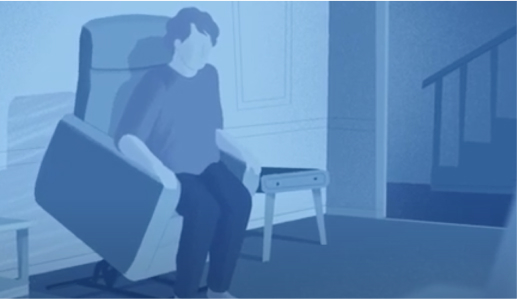
- Don't let MND trip you up | Preventing falls
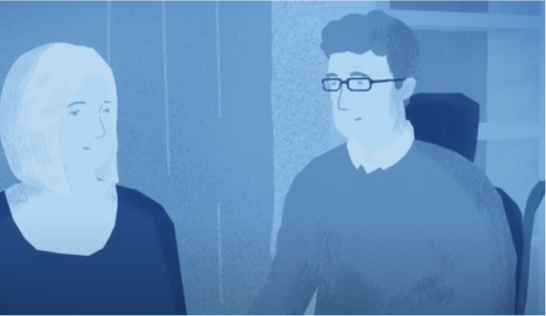
- When someone you love has MND
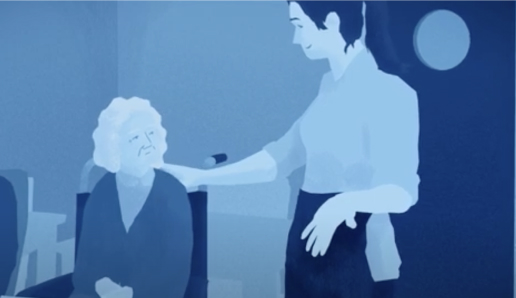
- Speech and Communication with MND
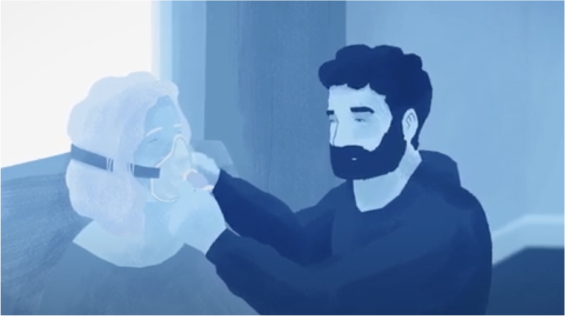
- What is MND?
Managing symptoms
Because of your MND, you may experience a range of physical and emotional symptoms. If you are affected in any way and need help, please remember you can always contact your MND clinical nurse specialist, GP or another member of your care team.
Alternatively, you can contact MND Scotland on 0141 332 3903 or email support@mndscotland.org.uk. We can then talk through your symptoms and tell you about possible ways they could be managed, for example, through the use of specialist equipment.
Possible physical and emotional symptoms of MND:
Joint and muscle pain
Muscle cramping
Leg and foot swelling
Poor posture and neck control
Sleep and positional problems
Fatigue
Changes to sex life
Eating and drinking problems
Choking
Mucus and excessive saliva
Mouth conditions
Constipation
Breathing problems
Personality and behavioural changes
Taking care of money
A diagnosis of MND can significantly reduce a household’s income and result in rising costs. This can often lead to people living with MND and their family members having daily worries about paying their mortgage and household bills and covering many other costs.
To help ease your money worries, we provide a free Welfare and Benefits Advice Service. It can offer you expert guidance and help you claim the benefits and other financial support you’re entitled to.
We also offer a range of grants to assist with various aspects of living with MND, such as home adaptations, taking a break and accessing services that can boost your wellbeing.
Quality of life
Motor neuron disease can have a major impact on a person’s quality of life. But there are many things you can do to feel comfortable, remain independent and keep enjoying life.
Staying independent
MND may affect how you do things and get around. But there is a wide range of support available that can help you remain independent.
Because of your illness, you may start to struggle to swallow, feed yourself or raise a cup to your mouth.
If you’re affected in this way, it’s important to contact your occupational therapist, MND clinical nurse specialist or another member of your care team about this issue. They can help you access equipment such as drinking and eating aids.
MND Scotland can also loan or give you equipment to help with eating and drinking. Please see our free equipment and communication aids page for more information.
As your MND progresses, you may experience problems speaking, writing or typing. If you’re affected in this way, it’s important to speak to your MND clinical nurse specialist or GP about being referred to a speech and language therapist.
The speech and language therapist will assess you and tell you about communications aids that could help you. These aids include eye-gaze systems that allow you to operate a computer or mobile device through the movement of your eyes.
MND Scotland can also loan you technology to help you communicate. Please see our free equipment and communication aids page for more details.
If you’re worried about developing speech problems and want to preserve your voice for the future, MND Scotland may be able to cover the cost of you using the SpeakUnique service.
For more information, please visit our equipment and communications page.
You can also contact our team on 0141 332 3903 or info@mndscotland.org.uk to discuss the SpeakUnique service and grants to cover the cost of using it.
MND may lead to you losing strength in your arms, wrists and hand muscles. This could result in you struggling to grip or use objects such as pens, cutlery and various technology.
But the good news is there are lots of products available that are designed to help you overcome these problems. Please speak to your occupational therapist or MND clinical nurse specialist about these.
We may be able to loan or give you equipment or technology through our Equipment Service.
If your mobility or movement starts to be affected, it’s important you request a care assessment from your local council. Your MND clinical nurse specialist will usually request this on your behalf. This will identify your all-round care needs and what services, home adaptations and specialist equipment will help you.
You could also ask for an occupational therapist to assess your mobility and movement around your home. They can then advise you about helpful equipment, home adaptations and how you can help yourself.
If you struggle to access an assessment, home adaptations or equipment, please use our Advocacy Service and we’ll help to change this.
We can also give or loan you equipment to help you with your mobility and movement. You can learn more about this on our free equipment and communication aids page.
On top of this, we may be able to offer you a grant to fully, or partly, pay for an adaptation to your home, technology or specialist equipment.
If you’re diagnosed with MND, you must inform the DVLA. This does not mean you’ll be forced to stop driving, but you may need to take a medical or driving assessment.
If you do drive and receive the higher rate mobility component of the Personal Independence Payment or Disability Living Allowance, you might find the Motability scheme helpful. It may allow you to exchange your mobility component to lease a new car, wheelchair accessible vehicle, scooter or motorised wheelchair.
You may also find the Blue Badge scheme helpful too. It helps people with a health condition or disability to park closer to their destination.
Travel and holidays
Taking a break and getting away from your day-to-day routine is something you and your family may find hugely beneficial. To help you do this in a safe and relaxing way, we offer people living with MND and their carers access to two Scottish holiday homes for free.
You can find out more about these great destinations on our Holiday in comfort page. This page also features links to other organisations that specialise in accessible holiday accommodation.
On top of this, we may be able to offer you a grant to fully, or partly, pay for a short trip away or longer holiday.
Sex and intimacy
Intimacy and sexuality are important to quality of life and emotional wellbeing, and we know they remain important to people living with MND their partners, regardless of age and level of disability. Although MND does not affect sexual function, physical changes can affect sexual expression and the way a person with MND feels.
Close physical contact, touch and time together often becomes more important as a person’s condition deteriorates but it is very individual how diagnosis impacts the importance placed on a couple’s intimate lives.
If you have questions or concerns around these aspects of your life please speak to your MND clinical nurse specialist.
Treats for yourself
Making time for things that make you feel happy or fulfilled could be incredibly important to your quality of life. So, try to treat yourself, now and again. This might involve you going out for dinner, having a massage or doing a hobby you enjoy.
To help you treat yourself, we may be able to offer you a grant to spend on therapies and services that help you relax and feel good, or to spend quality time with family or friends, pursue a hobby or do something else that helps you switch off and forget your worries.
Support for people living with MND
Learn more about all the support and services we offer to help people living with MND understand their illness, prepare for the future and have a good quality of life.

Support for carers
If you care for someone living with MND, we are here to support you too. Find out more about our free wellbeing, practical and financial services.
Other sources of support
Locally and nationally, there are many organisations that can provide you with helpful information and support, including your local authority, hospices and charities.
Below, we have listed some of these organisations for you. But also feel free to contact us on 0141 332 3903 or info@mndscotland.org.uk if you’re seeking more specific support. We’ll do our best to provide you with answers or point you in the right direction for further help.
You can also contact us to find out about the many discount schemes and concessions you may entitled to because of your diagnosis. These include discounted rail and bus travel, discounted cinema passes and reduced entry fees to many visitor attractions.
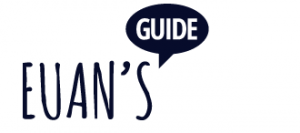
Reviews on the accessibility of different venues, such as hotels, restaurants and theatres.
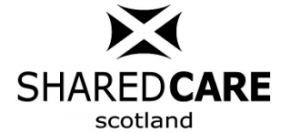
Directory of accessible short breaks and accommodation, as well as other helpful resources.
Sign up
for newsletter
Get the latest news and events straight to your inbox
You can help create a world without MND

